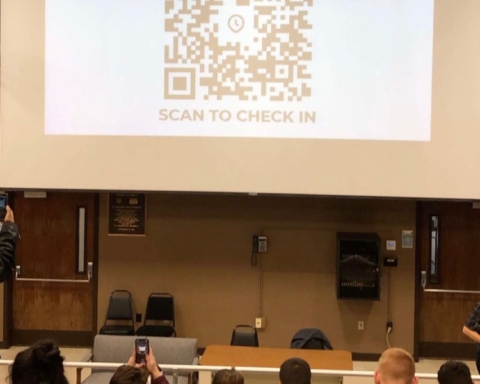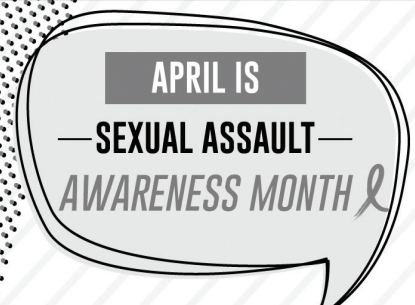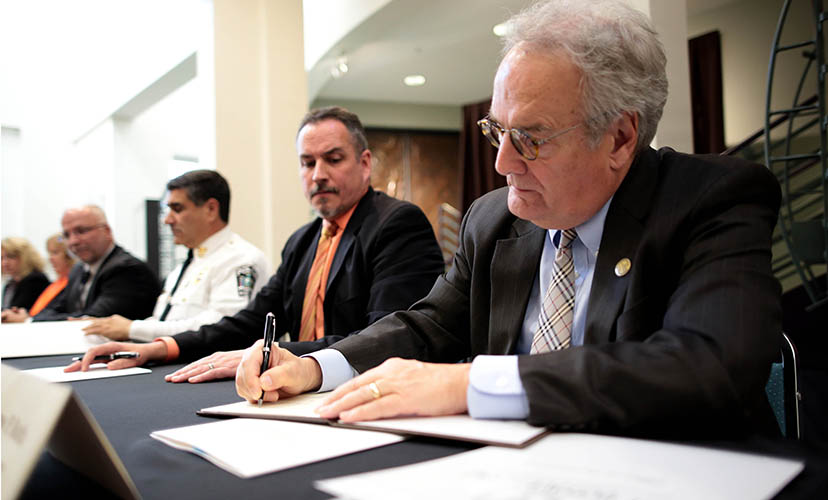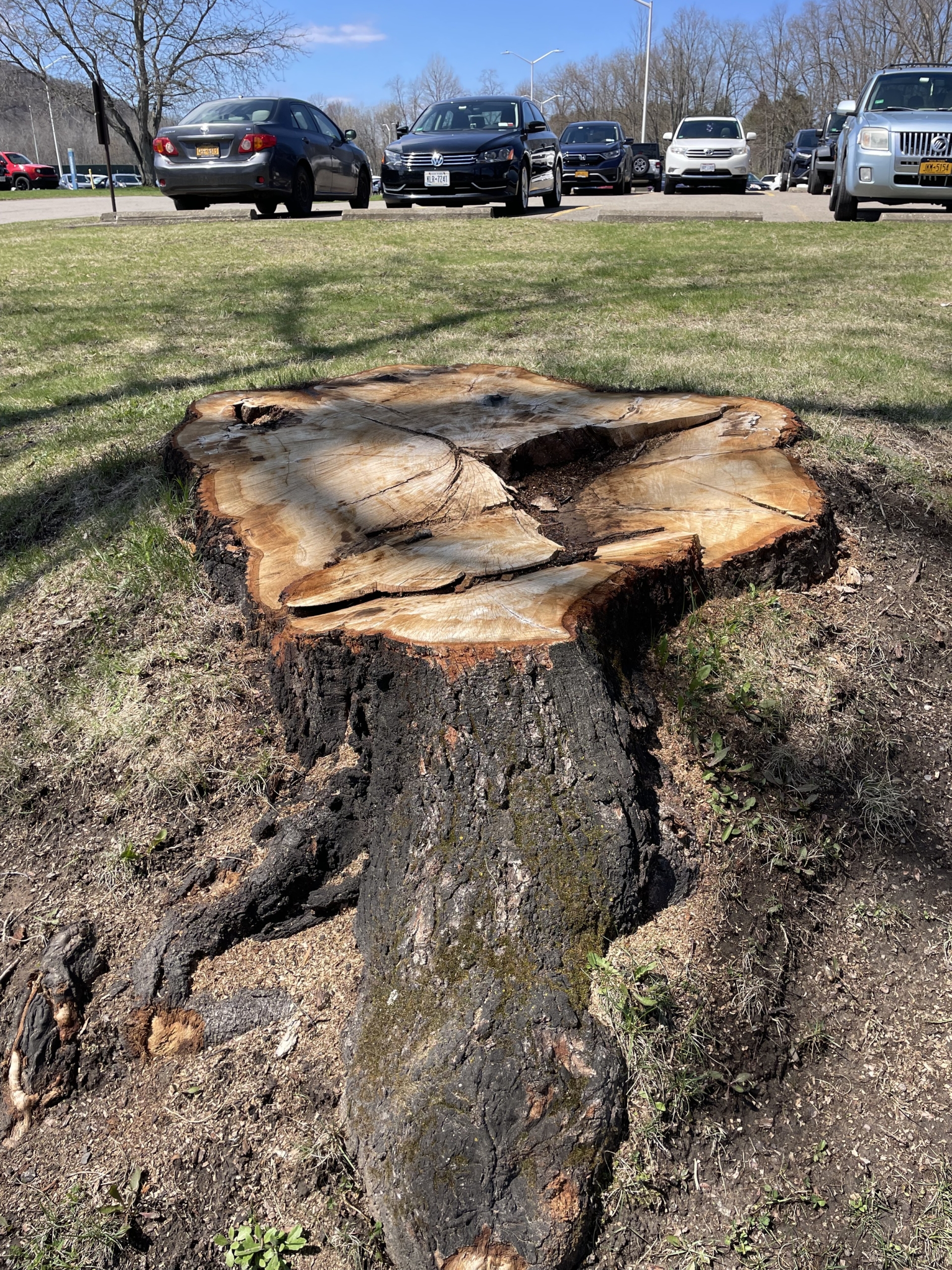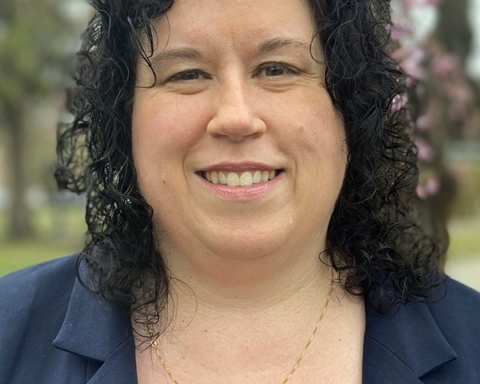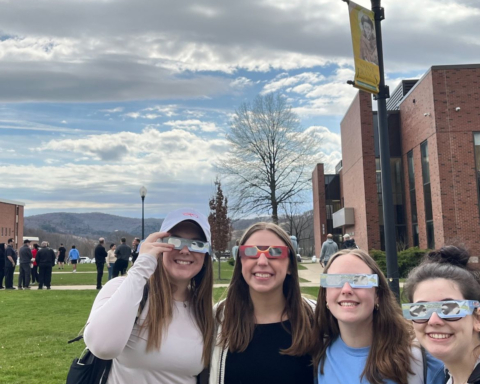By Emily Losito
News Editor
“A couple of years ago, I got together with a friend at a coffee shop, and we talked about high-profile sexual assaults on campuses,” Christopher Cinq-Mars Jarvis said.
“We wanted to address the ‘he said, she said’ situations that can make prosecuting the offender very difficult.”
The 27-year-old film director said at first they wanted to make a data-collection app to give users more confidence and, if necessary, evidence.
Jarvis created the PhoneFlare app hoping it could help end sexual violence on college campuses.
According to the PhoneFlare website, the app is completely free to users.
Juliette Bauer, president of SBU4Equality, said the app could be beneficial to the campus. Bauer has looked into necklaces and bracelets students could wear.
“But that involves buying something,” she said. “With the [PhoneFlare] app, it’s free, so that’s nice.”
PhoneFlare is a volunteer-run, non-profit app that texts family and friends the location of the user in danger. If the user is on campus, it can notify the school safety dispatch of his or her location.
The user can simply swipe up on the screen to signal an emergency. The user can also arm PhoneFlare with an accessory in the headphone port and remove it, or users can miss a timer that was set in advance.
Jarvis, a Kalamazoo, Michigan native, got the idea for the headphone jack release when he was running on the treadmill and his headphones came out.
Each contact added will receive a text when the user is in danger and send location updates. The GPS coordinates are updated every 15 seconds until the user is safe.
Once confirmed the user is safe, the emergency contacts are notified and GPS access for contacts and campus safety stops.
Some options include ability to record audio during emergencies. A multi-color disarm lets users trigger silent emergencies and verifies the user’s identity. He or she chooses a color that is required for disarming it, and users can discretely activate an emergency by choosing the wrong color.
This emergency trigger would have to be disabled from another device online.
Since the company, or volunteers, pay for all of the texts and calls, they don’t want any false-positives. To ensure this, there is a five-minute timer to give users the ability to disable emergencies before their contacts are notified, Jarvis said.
Bauer said Protect the Pack might find the app easy to use and interesting. Protect the Pack is a student-run group branching off of SBU4Equality that focuses on sexual violence issues at Bonaventure.
“It’s good that the app had more discreet ways of setting off an emergency,” she said. “It’s how some of these situations happen when people feel unsafe.”
One of Jarvis’s goals is to “encourage universities’ hands a little bit and to encourage them to spend more of their financial resources to help prevent sexual violence.”
Gary Segrue, head of safety and security, said, “We are in the exploratory stage of fact gathering and the compatibility of multiple safety apps. PhoneFlare is one that is promising. It would be great for the campus community if we could have the app in place by the start of the spring semester.”
Jarvis said this app is important to him because he had some college friends that went through sexual violence.
“This problem is preventable,” he said.
Bauer, a women’s studies and English double major, said she is always looking for ways to protect herself.
“I hardly like going out after 7 p.m., even on weekdays. Especially during the winter when it gets dark early,” the junior said.
PhoneFlare is reaching out to celebrities and asking them to tweet about the app. Jarvis, founder of JarvisFilms, said it just got a Google advertising grant so the app can be promoted online for free.
This month, Jarvis said a national release is planned.
The app had a “soft release” down in southern states in order to address bugs and other technical issues. PhoneFlare has been tested at other universities and there were volunteers for beta testing.
The app has been in the works for two years. Jarvis said it’s available for over 800 universities; it’s being used right now by over 300.
lositoek14@bonaventure.edu

